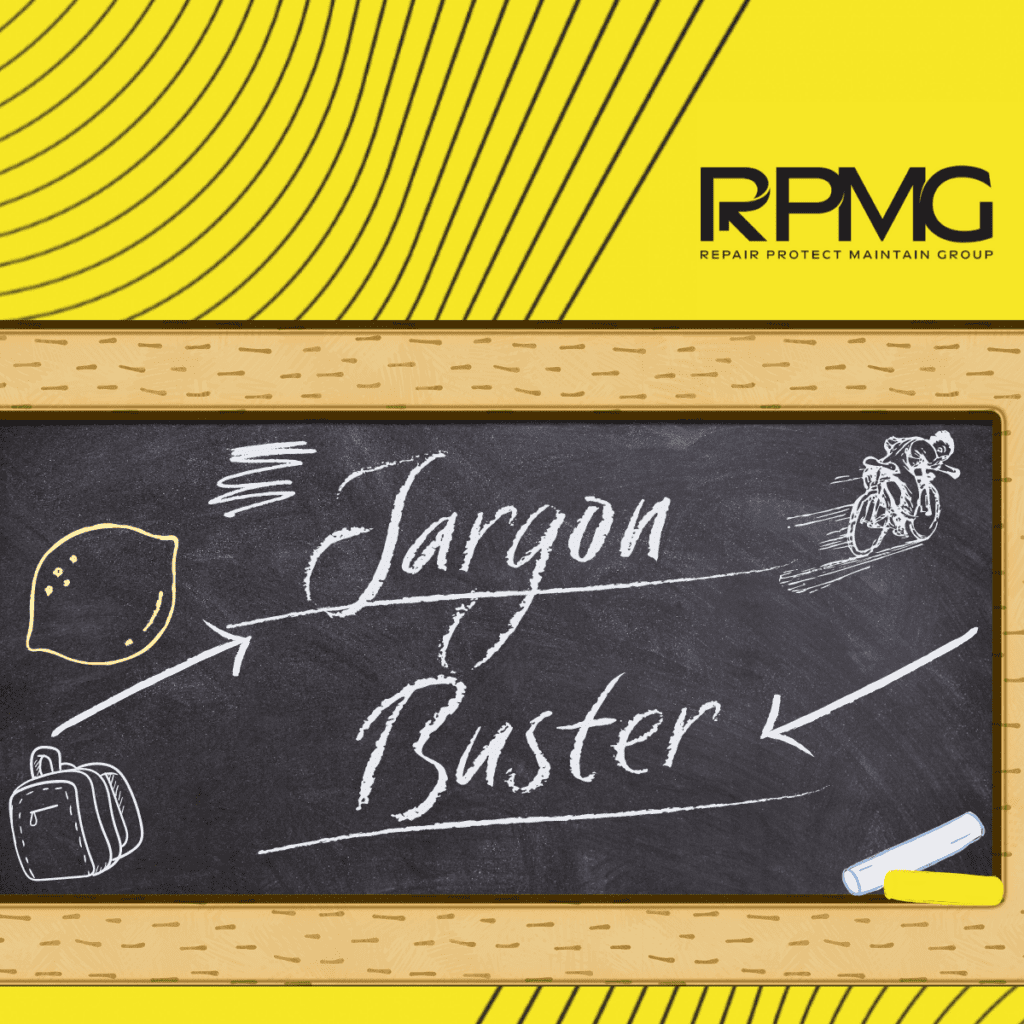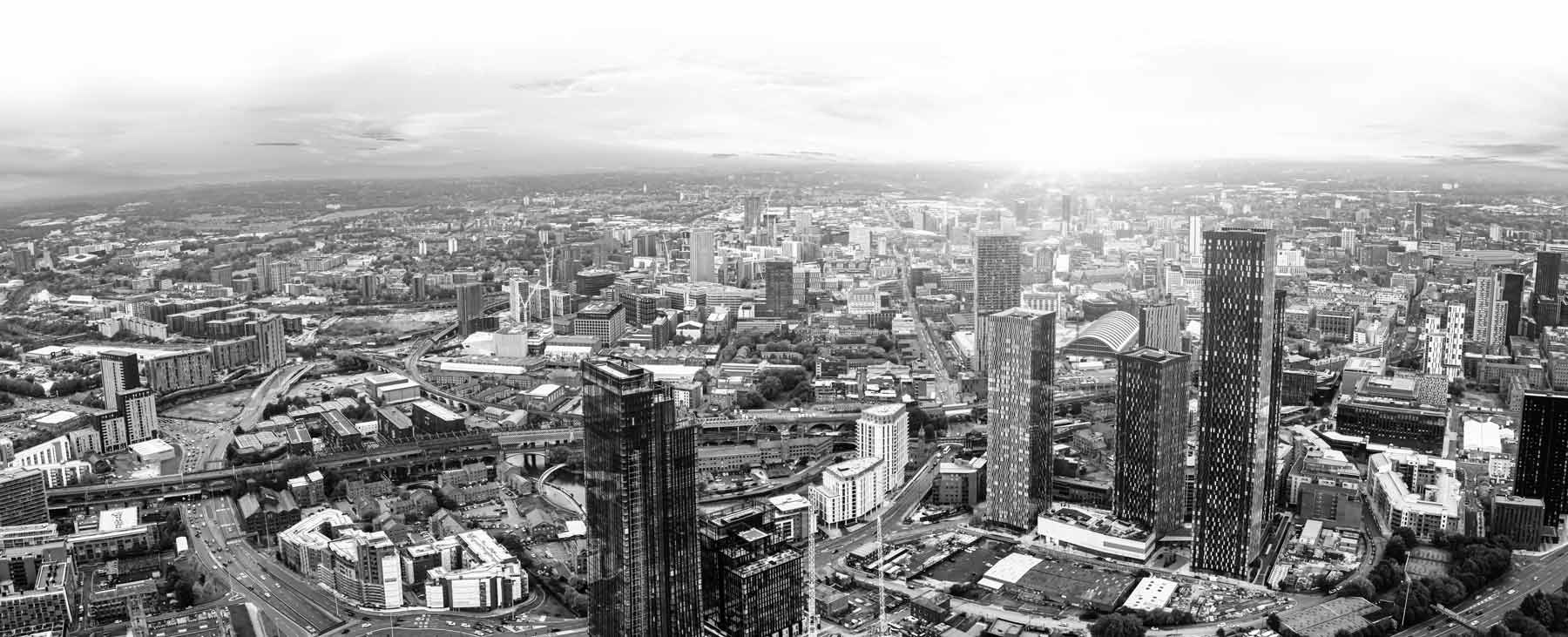RPMG's building maintenance
Jargon Buster
In the ever-evolving landscape of the building maintenance industry, effective communication is the cornerstone of success. At RPMG Global, we recognize that collaboration is key. It's not just a catchphrase; it's a fundamental value that guides how we approach our business.

We know that when our partners understand the intricacies of our industry, we can work together more seamlessly, efficiently, and effectively.
In line with this commitment to collaboration, we are thrilled to present our Building Maintenance Jargon Buster. This comprehensive guide is designed to demystify the complex terminology often encountered within our field. It’s not about showcasing our expertise; it’s about empowering our partners, clients, and stakeholders with the knowledge they need to make informed decisions.
The world of building maintenance is multifaceted, with its own set of unique terms and acronyms that can be perplexing to those not intimately familiar with the industry. But at RPMG Global, we firmly believe that this complexity should not be a barrier to effective collaboration. Our Jargon Buster is a testament to our dedication to simplifying the way we do business. We want you to feel confident and informed when working alongside us.
Whether you’re a seasoned industry professional looking to refresh your knowledge or a newcomer seeking to navigate this intricate landscape, our Jargon Buster is here to serve you. We’ve curated a collection of terms, concepts, and explanations that will break down the barriers between us and our valued client’s. We’re not just simplifying the jargon; we are simplifying how we do business.
So without further ado… Let’s get into it.
Jargon Buster
Advise: Essentially, this means to communicate or give guidance.
Agree: In this context, it also means to communicate and reach an understanding.
Approve: To officially confirm that a task or work meets specific criteria.
Communicate: This covers various actions like advising, informing, agreeing, confirming, notifying, seeking, providing, or obtaining information, consent, instructions, or making arrangements.
Confirm: Confirming something is just another way of communicating or verifying it.
Ease: Adjusting parts of something to make it work smoothly.
Fix: The whole process of handling, installing, and securing something in place, including cleaning up and disposing of waste.
Give notice: This means to communicate in writing, especially to the person managing a contract.
Inform: Similar to advising or communicating, it’s about sharing information.
Keep for recycling: Hold onto materials for future use, specifically for recycling.
Keep for reuse: Preserving items, like equipment or materials, in good condition for future use.
Make good: Doing minor repairs or improvements to make something secure and neat.
Match existing: When replacing or adding to something, make it look like the original, blending it in as much as possible.
Notify: Another word for communicating or informing.
Quote: In this context, it’s the same as estimating a cost.
Recycle: The process of collecting, sorting, and converting discarded items into raw materials for making new products.
Refix: Putting something back in its place after it has been removed.
Remove: Taking apart or uninstalling something and disposing of the parts that aren’t needed.
Remediate: Taking action to clean up or mitigate hazardous materials on a property.
Repair: Fixing something to bring it back to its original working condition.
Replace: Removing something and installing a new one that matches the original.
Reuse: Using items again without recycling them.
Submit: Delivering required information to a specified person in a particular format and timeframe.
Submit proposals: Providing information as a response to specific requirements.
Supply and fix: Providing the necessary products and materials for a project and installing them.
Maintenance: The ongoing process of keeping something in good condition or repairing it when necessary.
Preventive Maintenance: Regularly scheduled tasks aimed at preventing issues or breakdowns in machinery or systems.
Routine Inspection: Regularly scheduled checks to identify any problems or wear and tear.
Emergency Repairs: Urgent fixes required to address unexpected issues that can’t wait.
Facility Management: The overall management and maintenance of a building’s physical assets and infrastructure.
HVAC: Heating, Ventilation, and Air Conditioning systems that control the climate inside a building.
Plumbing: The system of pipes and fixtures used to supply water and dispose of waste in a building.
Electrical Systems: The network of electrical wiring, switches, and equipment in a building.
Roofing: The materials and structure that make up the roof of a building.
Warranty: A guarantee from a manufacturer or contractor that their work or products will perform as expected for a specified period.
Energy Efficiency: Measures taken to reduce energy consumption, often through upgrades or maintenance.
Inspection Report: A document detailing the findings of an inspection, including any needed maintenance or repairs.
Scheduled Downtime: Planned periods when a system or equipment is intentionally taken offline for maintenance or upgrades.
Work Order: A formal request or directive for a specific maintenance task or repair.
Asset Management: The systematic approach to tracking, maintaining, and optimizing physical assets in a facility.
Vendor: A company or individual supplying products or services for maintenance and repairs.
PPE (Personal Protective Equipment): Safety gear like helmets, gloves, and goggles used to protect workers during maintenance tasks.
Compliance: Ensuring that maintenance activities adhere to industry regulations and safety standards.
SLA (Service Level Agreement): A formal contract outlining the level of service a maintenance provider will deliver.
Sustainability: Practices that promote environmental responsibility in maintenance, such as recycling or using eco-friendly materials.
Asset Register: A comprehensive list of all assets within a facility, often used for maintenance planning.


